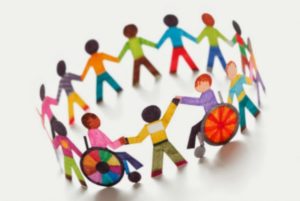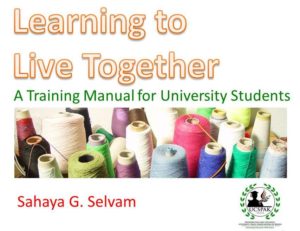 What does “admonition of sinners” – a spiritual work of mercy – mean? What criteria could we use in our judgement of sin, and how do we admonish the sinner using common criteria? This chapter attempts to answer these questions. In discussing these issues, within the scope of this book, the focus in this chapter will be the education of youth to the admonition of sinners as a spiritual work of mercy. There are three initial sections: the first of which attempts at a definition of sin drawing insight from Ignatian spirituality. Based on this definition, the following section explores the meaning of admonition of sinners. This second section relies much on the Biblical meaning of the spiritual act of mercy. In the third section, we go on to discuss the challenge […]
What does “admonition of sinners” – a spiritual work of mercy – mean? What criteria could we use in our judgement of sin, and how do we admonish the sinner using common criteria? This chapter attempts to answer these questions. In discussing these issues, within the scope of this book, the focus in this chapter will be the education of youth to the admonition of sinners as a spiritual work of mercy. There are three initial sections: the first of which attempts at a definition of sin drawing insight from Ignatian spirituality. Based on this definition, the following section explores the meaning of admonition of sinners. This second section relies much on the Biblical meaning of the spiritual act of mercy. In the third section, we go on to discuss the challenge […]
Author: selvam
Personality Theories: A brief history
Dr Paul: Youth & Children with Special Needs
 Day 1 – Monday: Download Class Notes in PDF <<Lecture 1 – An Introduction to Special Educational Needs – PDF>>
Day 1 – Monday: Download Class Notes in PDF <<Lecture 1 – An Introduction to Special Educational Needs – PDF>>
Day 2 – Tuesday: Download Class Notes in PDF <<Lecture 2 – Cognitive and Learning Difficulties- PDF>>
Day 3 – Wednesday: Download Class Notes in PDF <<Lecture 3 – Communication & Interaction Difficulties – PDF>>
Day 4 – Thursday: Download Class Notes in PDF <<Lecture 4 – Social, Emotional and Behavioural Difficulties – PDF>>
Day 5 – Friday: Download Class Notes in PDF <<Lecture 5 – Sensory and or Physical Need – PDF>>
ON PLAGIARISM: <<Paul on Plagiarism>>
Learning to Live Together: Training Manual for Free Download
 How to use this Manual?
How to use this Manual?
Who is susceptible to religious or ethnic radicalization? What is the average profile of people who are already radicalized: male; aged between 15 and 35; belonging to a particular religion; unemployed; uneducated; a person with criminal background; traumatized; from broken families? No. There is no profile of such a person. Everyone is susceptible to religious or ethnic radicalization and extremism.
Most of us may not take up violence to express our extreme positions. However, in our judgement, in our expressions, in our daily encounters, we might lack empathy to our neighbor, particularly those who are different from us: in race, religion, ethnicity, nationality, and whatever. This attitude could breed into violent extremism and radicalization!
The sole aim of this training manual is to help the participants reflect […]